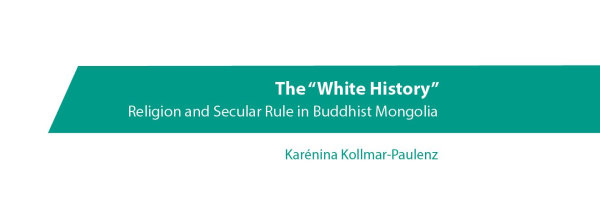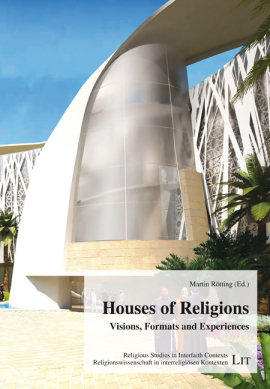|
If the newsletter does not display properly, please click here. |

|
||||
|
||||
|
Dear friends and colleagues, “Der April macht, was er will” (“April showers bring May flowers”) – a well-know saying that perfectly applies to the current weather situation. But the new week seems to bring a little more sun and we provide you with three new publications and the announcement of the 1st ReCentGlobe Annual Meeting. Our colloquium is taking a week’s break and will be back on 5 May as online event exclusively. In addition, we have an important update on Covid-19 health protection measures for you, and last but not least, a recommendation for a film event. Enjoy and have a good week! |
||||

|
||||
Covid-19 Update on health protection measuresDue to the high Covid-19 infection rates and the risk that this brings along for all of us – scholars and staff – we have decided
Thank you all for your understanding and cooperation. |
||||

|
||||
Publication: “Varieties of Secularity” by Florian ZemminWe would like to draw your attention to the latest publication by our Senior Researcher Florian Zemmin. With his article on “Varieties of Secularity” he contributes to the volume “The Oxford Handbook of the Sociology of the Middle East”, edited by Senior Research Fellow Armando Salvatore, Sārī Ḥanafī and Kieko Obuse. Modern societies in the Middle East have been shaped by processes of secularization, leading to a state of secularity on the levels of structural differentiations and conceptual distinctions between religion and the secular. In his article, Florian attends to both levels and largely focuses on the formative period of modernity but also adds a historical and contemporary dimension. Acknowledging the hegemony of colonial powers in configuring secularity both historically and conceptually, but highlighting Islamic variations and precolonial resources of secularity in the Middle East, this article furthers a research perspective on the varieties of secularity in global modernity and their plural genealogies. You can read the full article in the member area. |
||||
|
||||

|
||||
Publication: “The ‘White History’. Religion and Secular Rule in Buddhist Mongolia” by Karénina Kollmar-PaulenzOur Senior Research Fellow Karénina Kollmar-Paulenz has published her Companion article on “The ‘White History’. Religion and Secular Rule in Buddhist Mongolia” in our Companion to the Study of Secularity. Her article refers to the adoption of the Joint Twofold System of Governance formulated in Buddhist Tibet and its adaption to the Mongolian cultural context. This system of governance is described in the work “The White History”, written in the late 16th century, with the epistemic distinctions between the religious and the secular discursively negotiated in the work. Although the impact of these distinctions on the social differentiations of Mongolian society during the Qing period (1644–1911) remains to be investigated, the “White History” nonetheless provides a valuable insight into pre-modern Mongolian notions of the distinction between the religious and the secular. The Companion to the Study of Secularity is a publication that consists of short articles in encyclopaedic form and style, which detail the specific concepts and peculiarities of secularity in the regions and eras our members are specialised in. It provides the wider academic community with an insight into the concept of multiple secularities and thus fosters transdisciplinary exchange.
|
||||

|
||||
1st ReCentGlobe Annual Conference on 28–29 AprilThe year 2020 has inscribed itself in the collective memory worldwide primarily due to a globally effective pandemic. At the same time, experience has made us suspicious of a hasty characterization as a historical caesura. This experience teaches us that even when such an assumption is widely held, later hindsight puts much into perspective and allows us to see more continuity than would have been apparent to the immediate witnesses. For the Leipzig Research Centre Global Dynamics, the assumption of a possible caesura within the historical continuum of modern global interdependencies and disruptions (global condition) raises very central questions that will be discussed during the Centre’s 1st Annual Conference on 28–29 April. The annual meeting provides an opportunity to reconcile these diverse experiences with long-term research forecasts and expectations. At the same time, against the backdrop of new experiences with global knowledge cooperation and rapid digitization, it offers the opportunity to constitute the Cooperation Lab, the Digital Lab, and the Transfer Lab, and thus to lay the foundation for a completely new kind of research infrastructure in the humanities and social sciences. There will be four panels, a panel transfer lab, breakout sessions as well as public discussions. Our Director Christoph Kleine will present a panel called “Das Jahr 2020: Eine Critical Juncture der Religionsgeschichte? / “The Year 2020: A critical juncture of the History of Religions?”. The conference will be held in German and English. If you want to take part in the event, please register via e-mail. 28–29 April | 9:00 a.m.–8:00/5:00 p.m. (CET) Livestream on Youtube (parts of the conference)
|
||||
|
||||

|
||||
12th ALFILM – Arab Film Festival 21–30 AprilOur Associate Member Horst Junginger recommends to us the ALFILM Arab Film Festival 2021 starting today. This year as a home edition, the festival will bring you fresh cinema from the Arab world and festival flair to the comfort of your homes. Impressive cinematic art, gripping stories and outspoken statements are the focus of this year's OFFICIAL SELECTION, paired with strong protagonists who face their challenges and fight for change. Feature films and documentaries deal with topics such as migration, gender roles and the culture of remembrance and show a contemporary and often very personal picture of a region in motion. All films will be screened online on the new Berlin streaming platform Indiekino Club in their original version with English subtitles. Further information can be found here. There will also be film talks and panel discussions which will be broadcasted live.
|
||||
|
If you have any content that you think suits the purpose of the weekly, please feel free to send it to us at multiple-secularities@uni-leipzig.de. |
||||
|
Kolleg-Forschungsgruppe "Multiple Secularities - Beyond the West, Beyond Modernities" Nikolaistraße 8-10, 04109 Leipzig Mail: multiple-secularities@uni-leipzig.de |
